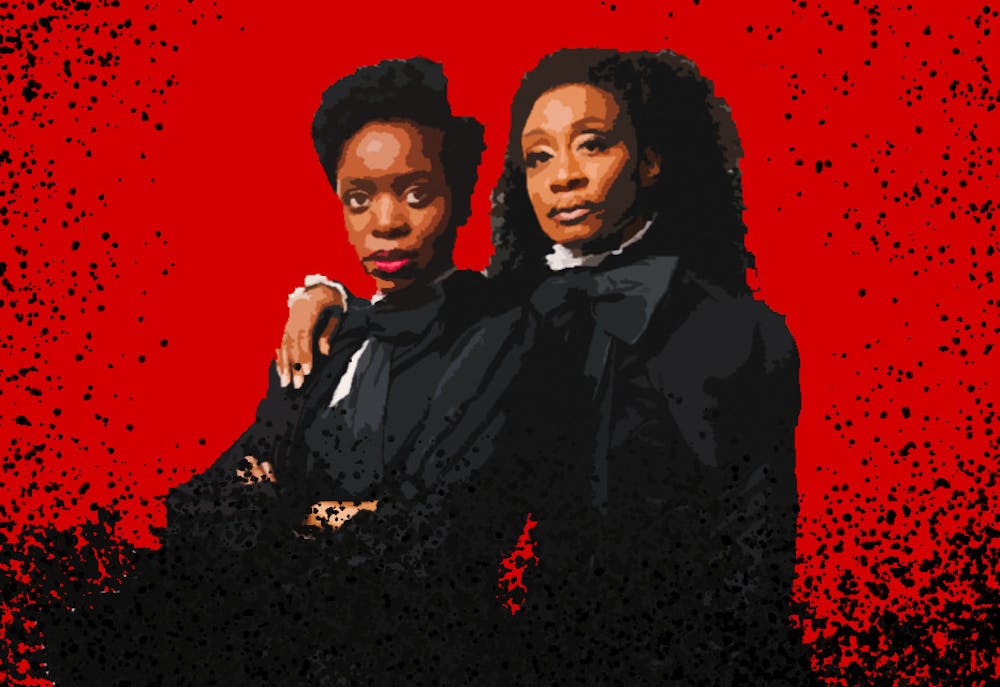Sylvia Pankhurst is a name that many might not fully remember from world history, especially with the current education system in place within the U.S., but she was an influential figure and arguably one of the most underrated pioneers during the women’s suffrage movement in London in the early 1900s.
Unlike her militant mother and sisters Emmeline and Christabel, Sylvia strongly aligned with the values of equality and pacifism, which caused her to be cast aside in a historical light because of how popular her family’s organization, the Women’s Social and Political Union, or the WSPU, became for using militant strategies.
As soon as her family started using tactics like hunger strikes and lighting mailboxes on fire to get the attention of Parliament, she left the organization, going off on her own to create her own movement, which is what the musical “Sylvia” centers around.
“Sylvia” is a current newcomer in British theater, premiering last month at the Old Vic Theatre in London. Starring Sharon Rose as Sylvia, Beverley Knight as Emmeline and Ellena Vincent as Christabel, the cast has gotten critical acclaim since the musical’s debut, currently nominated for three Olivier Awards including Best New Musical, Best Theater Choreographer and Best Actress in a Supporting Role in a Musical, which Knight is up for.
Being that I wasn’t the biggest musical theater fan, I was apprehensive about how well the story of Sylvia Pankhurst would be executed, but I was blown away by the cast’s vast array of talent, especially when it came to their vocal abilities and choreography.
“Sylvia” begins in 1903 in Great Britain, with viewers instantly seeing the Pankhurst family come to the forefront, and Emmeline, Christabel and Sylvia all listening to their mother’s call to action during a private suffrage meeting in their home. Right away, you can sense Sylvia’s anxiety about being militant, not sure if she has the courage to interrupt government meetings.
This sense of fear becomes a major theme throughout the musical, with many of its songs revolving around Sylvia and her apathy toward using violence. Rose’s stage presence instantly brings the audience into her head, the stage using visuals such as gray and blue lighting to emit the panic and pressure she felt to fit in with her mother and sister.
As the musical evolves, the audience begins to see the growing divide happening between Sylvia and her family, especially as her mother and sister encourage members of the WSPU to purposely get arrested – as well as use violence – to disrupt Parliament’s meetings. Sylvia’s love interest Keir Hardie, played by Alex Gaumond, also causes a fracture in her relationships as he is the head of the British Labor Party, whose ideals she aligns with in terms of class equality.
Gaumond and Rose’s harmonies in their moments on stage were some of the most memorable, but Knight also was a powerhouse throughout the whole show, even if she was playing the anti-hero. While all of the cast had great vocal ranges, Knight made whistle notes and rap verses look easy, as if she’s done it before in another life.
Towards the end of the play, there’s a powerful moment where Sylvia starts becoming the leader she’s always known she was meant to be, breaking up with Keir after realizing his infidelity and breaking free from her mother’s oppressive nature by leaving the WSPU. One scene in particular where Sylvia confronts her mother is where the climax of the show happens, with both actors battling one another through singing, which was beautifully controlled and passionate.
What’s most important about this show also was the references to the women who lost their lives for the sake of their rights, directly referencing heroes such as Emily Wilding Davison, who jumped in front of the king’s horse during a derby match as an act of protest. Additionally, the use of a mostly all-black cast was equally as important, symbolizing Sylvia’s passion for equality and representation.
“Sylvia” ends in 1928, the year that women’s suffrage was granted to all women in London, and follows Sylvia and her life as a mother. The ending, which sees Sylvia find a new love interest and continue to work for the British Labor Party, proves that Sylvia Pankhurst still lived a fulfilling life, one that she didn’t need her mother or sister. All in all, the show was an excellent retelling of Sylvia’s life, paralleling the current status of women’s rights throughout the world while tying in the history that got us to the present view of women’s autonomy and suffrage.






